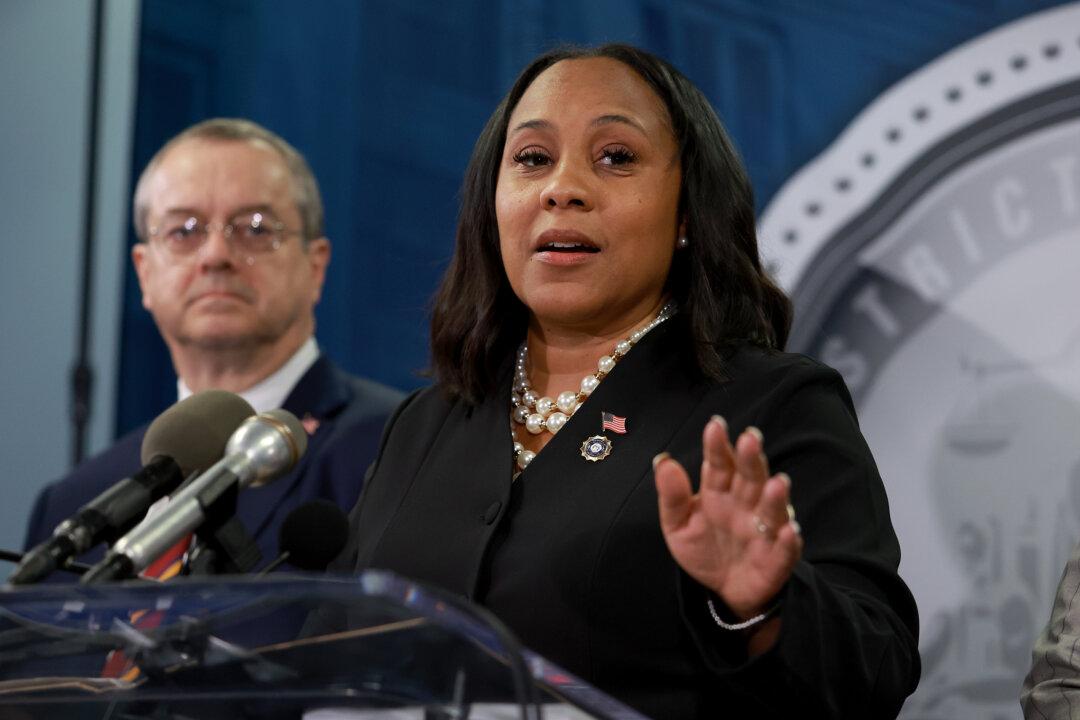Georgia prosecutors urged a federal judge to reject former Trump White House chief of staff Mark Meadows’s motion to hear state racketeering charges in federal court even if the judge finds a single overt act the defendant committed was protected by federal law.
The late Aug. 31 filing came in response to an Aug. 29 order by Judge Steve C. Jones of the Northern District of Georgia. The judge was appointed in 2011 by President Barack Obama.





